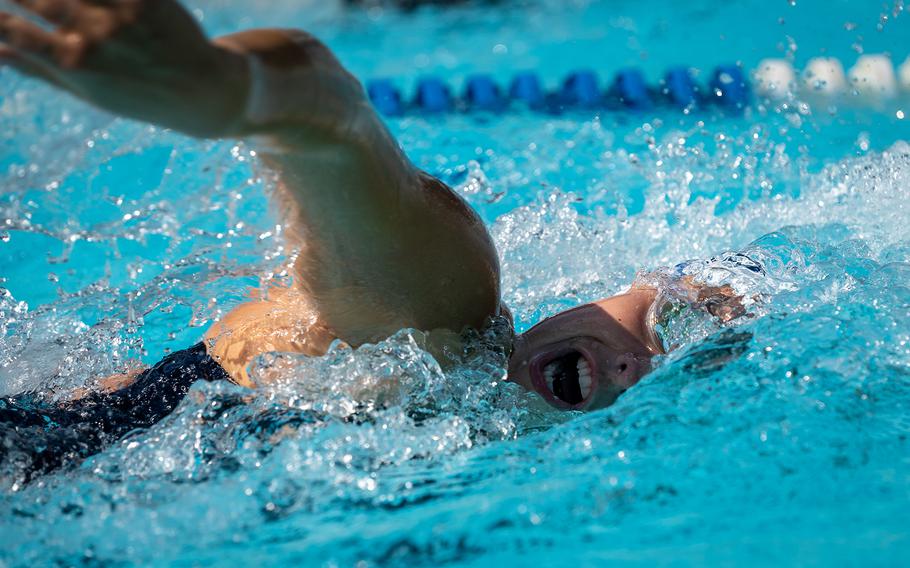
(iStock)
“C’mon! Pick it up if you wanna make the team!” my father bellowed over the “braaap-braaap-braaap” of his smoky Honda moped. I ran faster, my cheeks beet red from the August heat.
That was how I spent every morning during our family’s two-week vacation the summer after high school graduation. My father, who had earned a football scholarship to college, was dead set on his children being college athletes.
My older brother had always been a natural athlete, and was recruited for track to the U.S. Naval Academy. But after a hellish plebe year, he quit the team to concentrate on academics. My father was furious.
“You would’ve competed against Herschel Walker!” Dad blared, not able to fathom giving up college sports.
I, on the other hand, was a squishy kid who collected puffy stickers, sang along to old records alone in my room, played with Barbies well into middle school and stuck blades of grass in my nose to make myself sneeze. Sure, I earned a third-place ribbon at church camp in the standing broad jump, but I was no athlete.
It wasn’t until ninth grade, after my best friend dumped me for the pothead crowd, when I wandered into a swim team meeting.
“I swim I.M. What’s your stroke?” asked Patti, a new ninth grade girl who would become my lifelong best friend.
“What’s I.M.?” I asked, totally unaware that it stood for “individual medley,” a basic competitive swimming term.
When I told Dad I’d joined swim team, he mumbled, “Hmm, good for you,” barely looking up from his newspaper. That year, I was the worst one on the team. Despite my lack of ability, I loved the sense of belonging, camaraderie, team spirit, bus trips, team dinners, physical challenge and feeling that I was accomplishing something important.
At the season banquet, I cheered enthusiastically for my teammates who won awards, having no idea that I would receive one, too — “Most Improved.”
That recognition turbo-charged my motivation. By senior year, I was team captain and had broken a school breaststroke record. Dad developed the same fervor for my swimming as he had my brother’s sports. He lectured me after meets on improving and becoming a college swimmer. After graduation, he monitored my summer fitness regimen and made me run two miles beside his moped every morning while on vacation.
I’d been accepted to Miami of Ohio, a Division I school. My skills weren’t enough to attract recruiters at that level, so I tried out. There were two walk-on spots, and only two of us tried out. The other walk-on was better than me, but she quit after two weeks because practices were so hard.
They were hard, but I’d witnessed Dad’s anger and disappointment when my brother quit. Once again, I was the worst one on the team and I had to stick it out.
Freshman year was a struggle. I woke at dawn for morning practices, and swam again in the afternoons, swimming nearly eight miles a day. I came to class with frozen hair, and developed serious ear infections. I wasn’t on the travel team, wasn’t issued team sweats and was a “floater” for home meets. I was exhausted and out of my league. I never improved.
Dad came to the last home meet during Parents Weekend. Coach put me in 200 backstroke, my worst event. After the start, I spied teammates and spectators through my watery goggles and thought, “Are they cheering for me?” But by my last two pool lengths, everyone was seated and silent, waiting for me to finish.
“If you wanna do something else next year, that’s OK,” my father offered that night, without lectures. Even he could see that it had gone too far.
Youth participation in sports offers scientifically proven health and psychological benefits. It not only combats childhood obesity, it gets kids away from screens and involved in healthy activities where they can make friends, learn teamwork, develop coping skills and build self-esteem and a sense of belonging.
However, like most things in life, balance is key.
The next fall, I joined a sorority and practiced a different skill — how to have fun in college.
Read more at themeatandpotatoesoflife.com and in Lisa’s book, “The Meat and Potatoes of Life: My True Lit Com.” Email: meatandpotatoesoflife@gmail.com